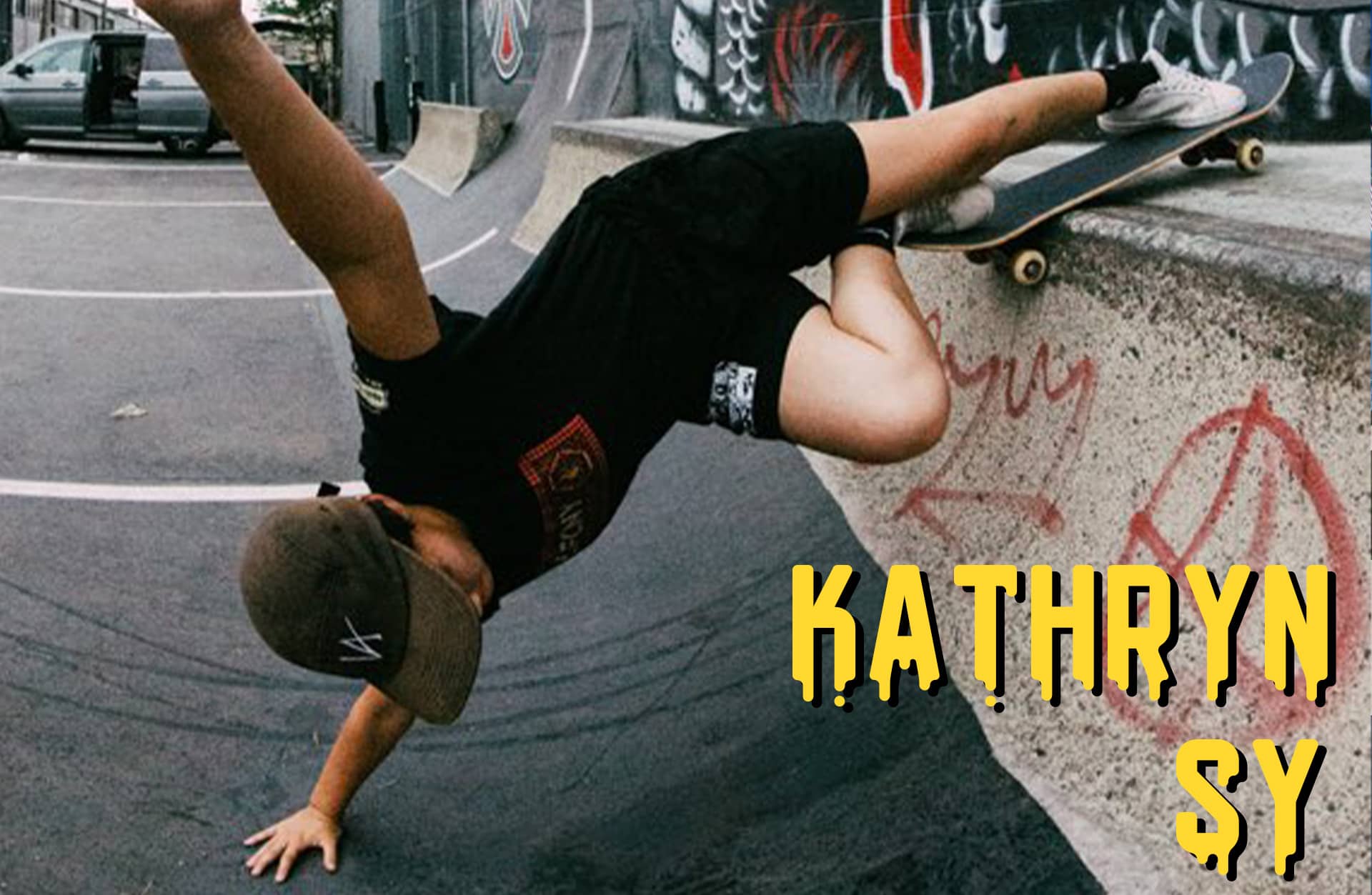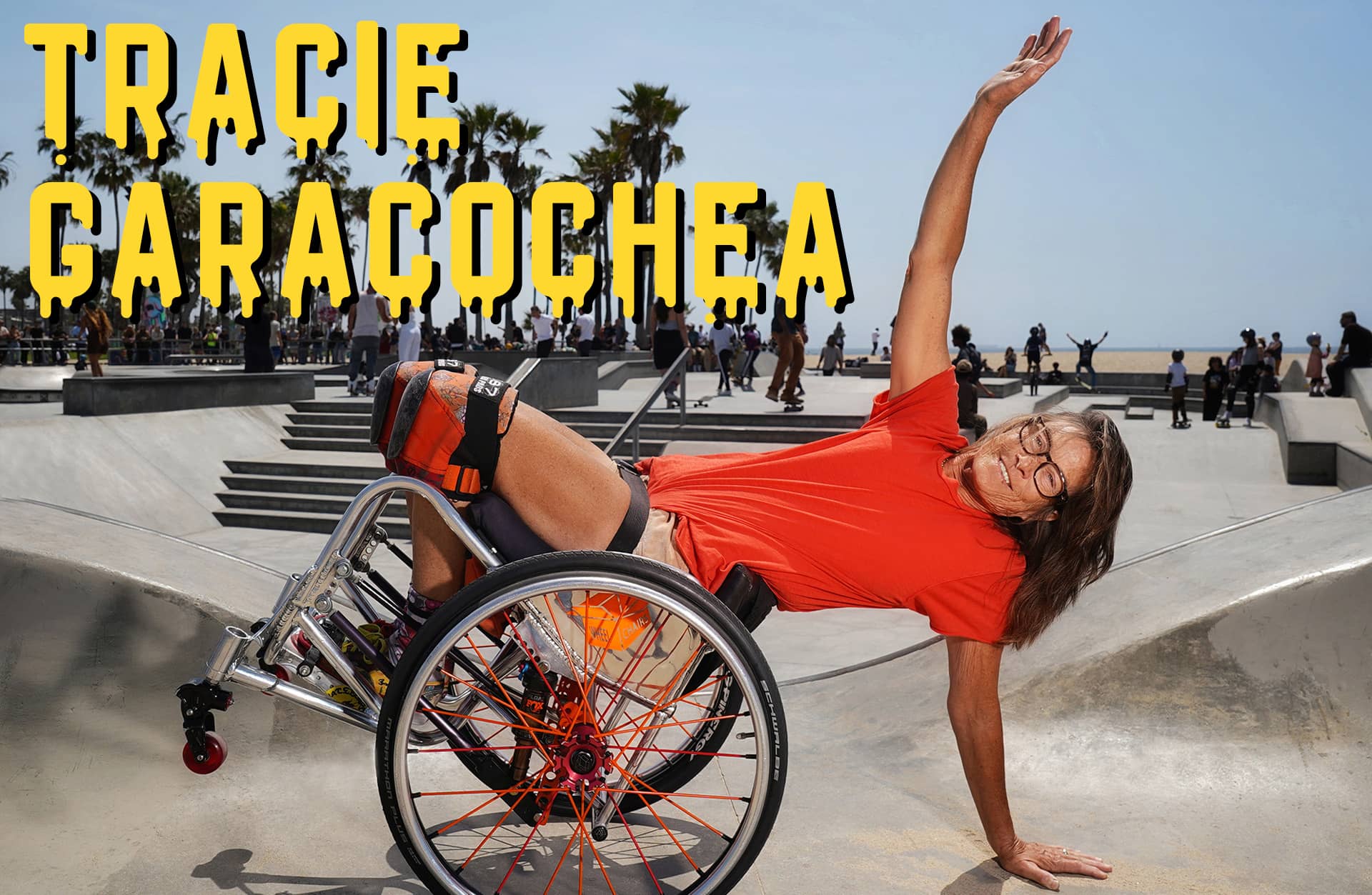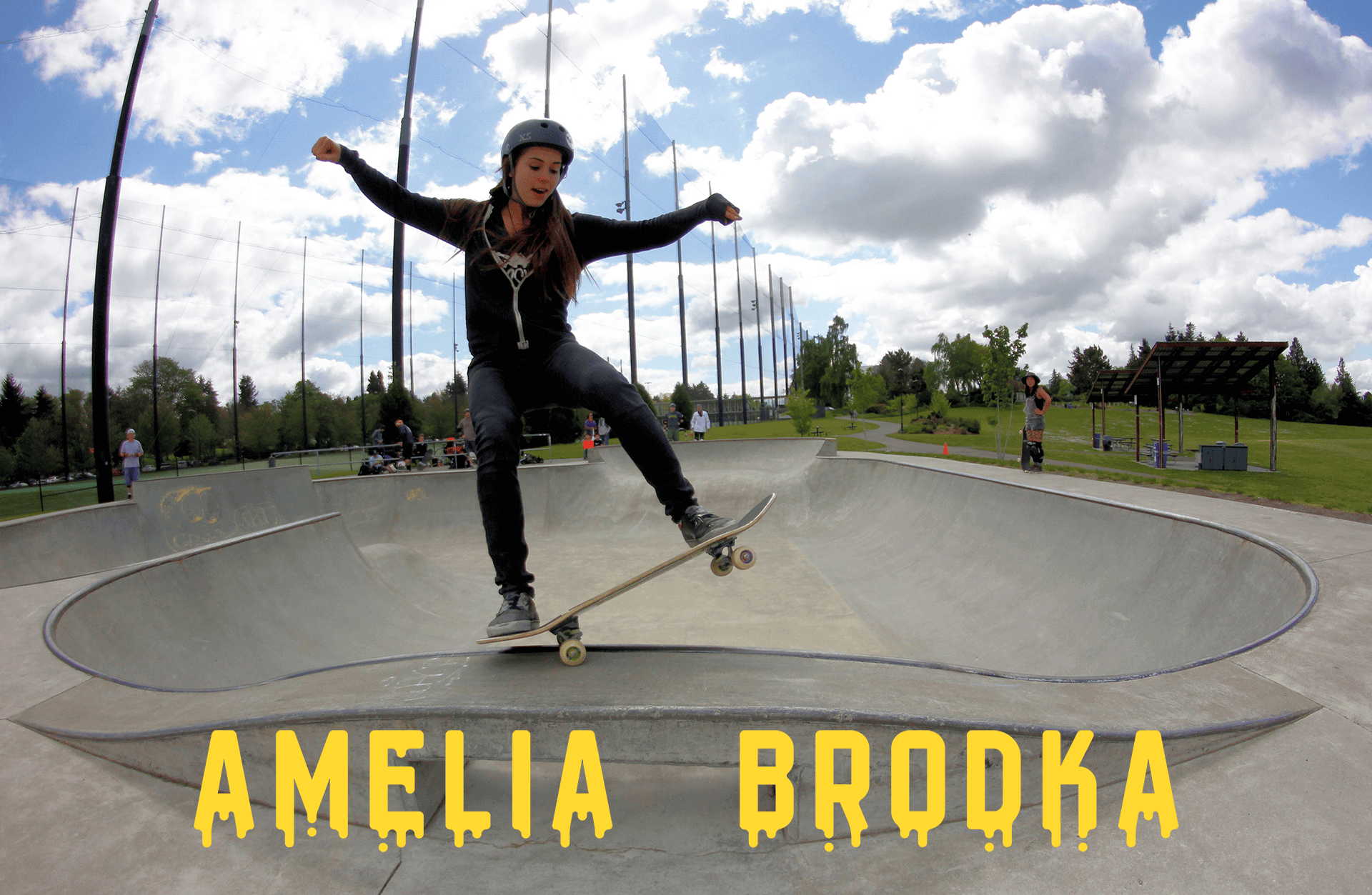SKATE // 01 DEC 2022
THE POWER OF FRIENDSHIP
“I felt like I had to be really good to prove to myself that I belonged [at the skatepark],” recalled There team skater Kathryn Sy. Obsessed with skateboarding since childhood, Sy’s perception of her time at the skatepark changed as she entered her pre-teens. What had once been a place for fun and creativity became unfamiliar. Singled out as the only girl at the park, she had to validate her presence. “So I got really good at skating. There’s a game, kind of like horse in basketball, where you do different tricks and you challenge someone else. So, I would play everyone at the skatepark games of SKATE and beat all of them, and I would hustle them for money.”
Growing up in Northern California, skateboarding’s luster shone bright in the eyes of the lively young 2000s kid. “It had this reputation,” said Sy. “Of being something that’s cool and fun. You see other people do it and you look in awe.” Biking, scootering, or rollerblading, Sy cruised around her neighborhood on any wheeled object imaginable. So there was no hesitation when a friend’s brother offered up the chance to try his board. She recalled, “I [felt] like a cool kid with a new toy.”
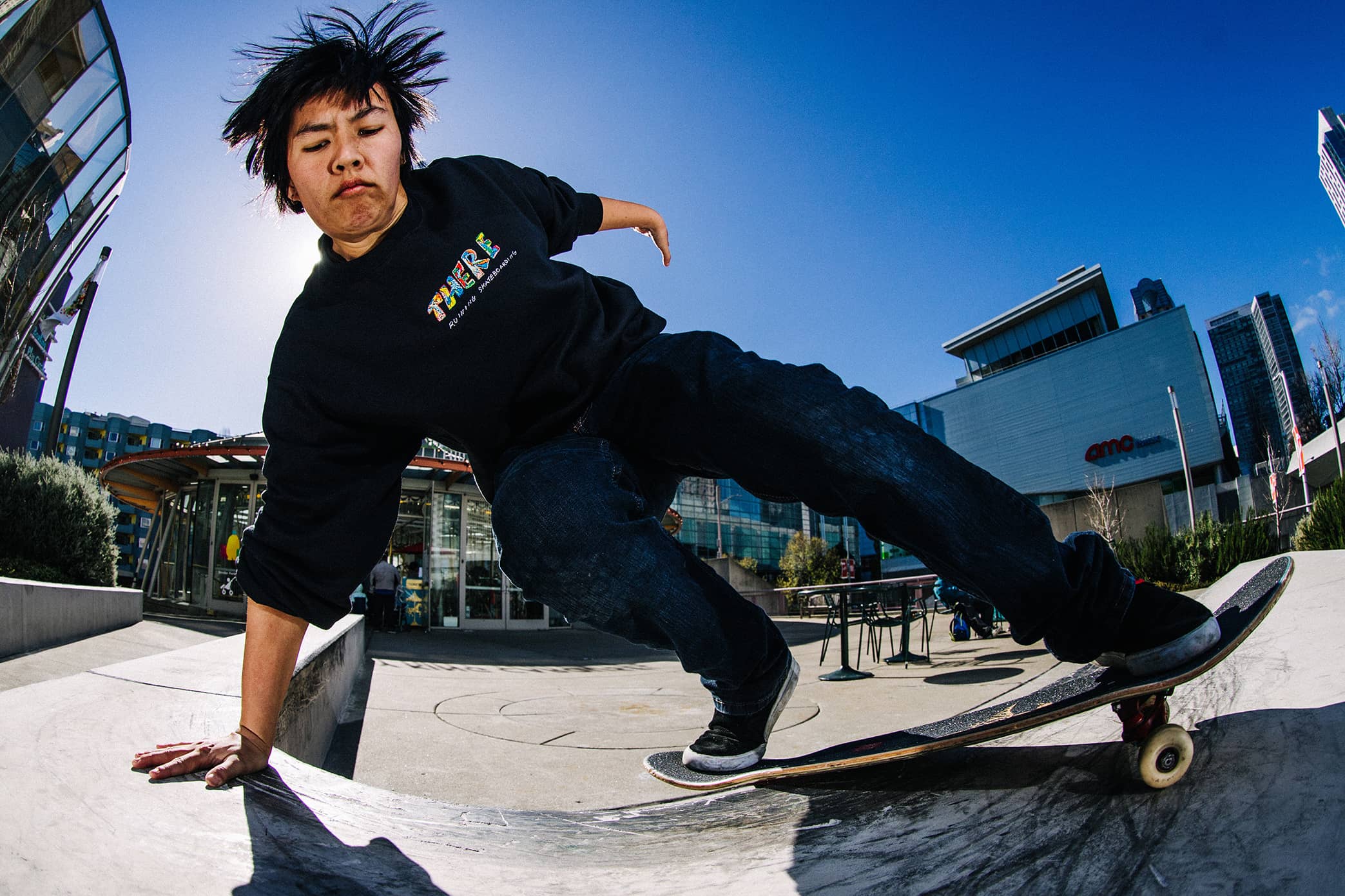
She was hooked after her first push. Once she was equipped with her own board, anywhere Sy could skate, she would. However, the neighborhood lacked a dedicated area for Sy and her friends to safely roll around, namely a skatepark. For years there’d been rumors of plans for a nearby lot to be transformed into a city skatepark, but it remained empty. Tired of pushing around in old tennis courts, Sy and her friends dropped by a city council meeting to make their thoughts heard. “We biked there after school one day to [say] we should have a skate park built so we have somewhere to skate and so our neighbors don’t get mad at us for doing it in the street,” recalled Sy. “I remember once I was telling that story to a kid at the skatepark, and the person sitting next to me happened to be the city council member that was there that day. It’s kind of all a blur. All I remember is hanging out, biking with my friends, talking to adults, and being really nervous.”
The Foster City skatepark became a regular stomping ground for Sy, its unique features laying the groundwork for her salient style. “[It was] like some guy drew what he thought a skate park looked like, maybe the architect skated, maybe they didn’t,” said Sy, reflecting on the design of many older skateparks. “You end up with something really strange and that develops into a style of doing really strange tricks to make use of the space.”
Thrilled to finally have a dedicated area to skate, Sy became even more inseparable from her board. As a kid, she didn’t feel the societal pressures of identity when she went to the park. There was no fear of judgment. No need for approval from others. She just skated. Then, puberty hit. “As I started to become more noticeably a girl, I noticed that my perception of myself, as well as other people’s perceptions of me, changed,” said Sy. “I felt pretty alienated.”
This sense of otherness was justified. For Sy, seeing another girl at the park was a rare and celebrated occasion. There was seldom someone for her to commiserate with that would understand the experiences of being a woman at a skatepark. However, teenage Sy was not about to let other people get in the way of her passion, so she doubled down. “I wanted to be the best skater there, so no one could pretend I didn’t belong,” explained Sy. “It’s funny because it’s that feeling that motivated me to get really good, but I think I was kind of unapproachable. I didn’t have a ton of friends at the skate park and all I wanted [in the end] was to have friends.”
Still, constantly challenging other skaters honed Sy’s technical skills and ability to perform under pressure. Both key factors to achieving her ever growing dream to become a professional skater. When it came time to go to college, she wanted to move even closer to the Southern California professional skate scene, so she enrolled at the University of California Irvine. After moving, academics quickly fell to the side as Sy prioritized progression and skate projects above all else. “I was filming for this video called Quit Your Day Job,” said Sy. “It was the first all women focused, full length skate video in about a decade. So, it’s a big weight on your shoulders, and I was really going all out.”
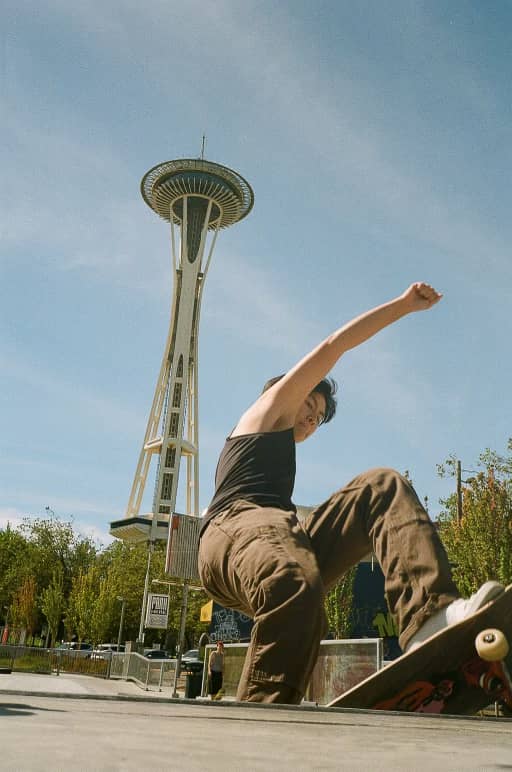
Sy was committed. She pushed herself hard, doing whatever it would take to make it as a pro. Then she tore her ACL. Knocked off her board for what would be a several month long recovery, Sy was forced to reevaluate her relationship with skateboarding. “That injury was a pretty big eye opener,” explained Sy. “[To be] a professional skater, what they are willing to do to get there, the amount of risk and uncertainty. After that injury, I realized it was not something I was willing to stomach. I didn’t want to have to live that life.”
Unable to skate, she focused on her studies, and post recovery continued to devote her time to earning her B.S. in Computer Science. Sy loved skateboarding, still does, but letting her passion consume her entire life left little room for anything else. Now working as a Senior Software Engineer she is able to cultivate stability and skate by choice instead of by necessity. As she explained, “Doing what you love as an occupation almost makes you love it less. I definitely felt like that was happening to me. As I was doing more competitions I was just kind of forcing myself to skate. When I used to try to skate really big things or really dangerous things, that wasn’t really me wanting to do that. That was me feeling like, oh, if I’m going to get sponsored, or if I’m going to win contests, these are the things that I need to be doing. It wasn’t really what I wanted to be doing.”
Now Sy skates with a mindset of sustainability instead of extremity, with the goal being to skate as long as possible by taking care of her body. “[Possibility of injury is] something that you can’t really take lightly in skateboarding. Yeah, it’s really good exercise, it’s good creatively, all of that stuff. But I think it’s probably worse for your body than it is good for your body. That’s just the sacrifice that you make,” shrugged Sy. “There are ways to make it safer. There’s ways to make it better, and I think it’s better than not exercising, but you can never eliminate all the risk. [That’s] something that you have to accept and be conscious of, and that’s how you can approach [skateboarding] more healthily.”
No longer forcing herself to fit into an idealized mold of a pro skater, Sy’s distinctive style thrives. Based on creativity, her approach to features is clever and playful. Swinging around poles at a playground or doing the flamingo up a set of stairs, Sy’s smiles and laughter while skating are contagious. “For me, skating is all about the feeling. [Asking myself does] this trick feel fun? Is it complicated? Am I using a bunch of different parts of my body?” she explained. “We skate how we feel, for sure. Because a lot of [skating] is not super conscious. It’s not like you are thinking about what your face is going to look like or what your arms are going to do. It’s like your body takes over, and it skates how it wants to skate, and it does what it wants to do. You can’t control every minute detail. That’s where I think, really, it’s just like dance. That’s where the emotion comes through.”
She continued, “I love making use of a spot in unconventional ways or skating spots that people wouldn’t really look at. I like to do stuff that I can do consistently. In terms of the creativity of [making] a trick look unique, or how I pick a spot that’s interesting, I think I have developed a much better eye for that as I’ve gotten older.”
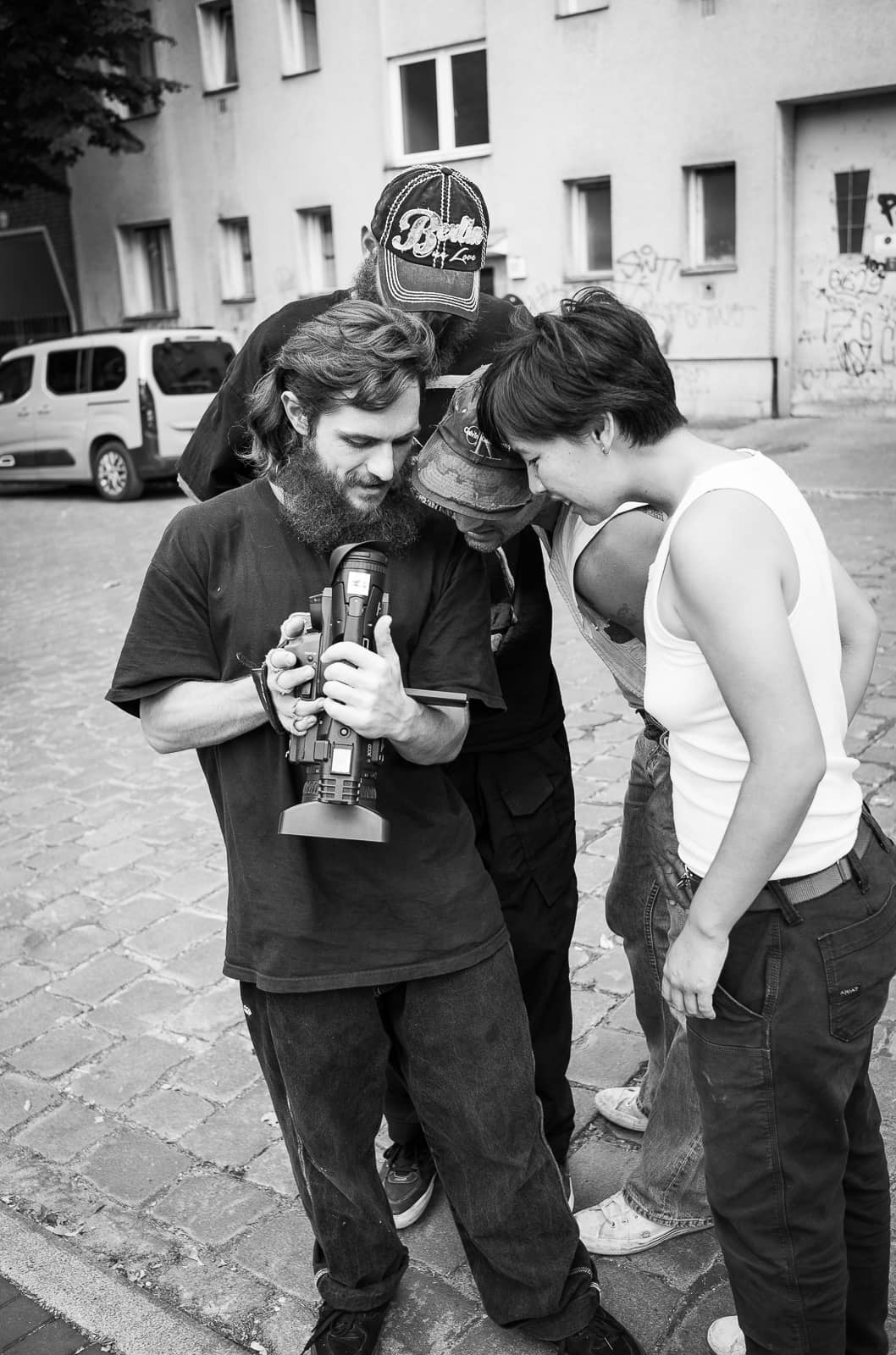
Secure in her sense of self, Sy has long abandoned her combative persona at the skatepark and in turn has found the friendships that she craved in her childhood. “It’s awesome because [it’s] what I always wanted as a kid, to have friends who skate who I really like as people,” she smiled. Because while it’s great to have friends that skate, Sy is truly grateful to have friends that touch every part of her life. “We do all sorts of things. We travel together and we make dinner at each other’s houses. It’s amazing to be able to share that with people who are your friends.” Of course when your friend group happens to be a queer skate team, there’s bound to be some silliness on skateboards too.
Founded by artist and skater Jeffrey Cheung, Unity and There Skateboards is a company and collective dedicated to supporting queer and trans skateboarders of color. By creating queer skate media, Cheung, and the entire There skate team, work to transform the narrative around QTBIPOC skaters. “I’m so grateful to be a part of There skateboards and Unity,” smiled Sy. “A lot of our creative energy can focus on video ideas or how we can promote different things. It’s so fun to have that. It’s a motivating reason to get out and skate together and film and edit together. It’s cool to have a thing that we all feel a part of and [that we] are all working towards.”
For the last two years those efforts were put toward ‘arguably the gayest skate video’ ever, “Ruining Skateboarding”. There Skateboards’ first full-length video, “Ruining Skateboarding” is a celebration of queer skateboarding, highlighting the diverse talents of the There Skateboard team. It was the representation that the queer skate community had been waiting for.
“I didn’t realize the gravity of the impact of [“Ruining Skateboarding”],” said Sy. “It’s funny because me and my friends who are on There, for us it feels like us being ourselves, and we’re just friends who hang out like everyone else because we are like everyone else. It’s amazing to see how many people are inspired by that.”
When she felt alone at the skatepark as a child, Sy found comfort online through the Girl’s Skate Network, a Youtube channel and website of videos and other online skate media featuring women. She felt seen. “I would watch it growing up and be like, this is amazing. This is what I want,” said Sy. “To think that ‘Ruining Skateboarding’ can have that same impact [on people] that Girl Skate Network had on me. That it’s really important to people, as important as it was to us making it. Yeah, [that realization] was really, really awesome.”
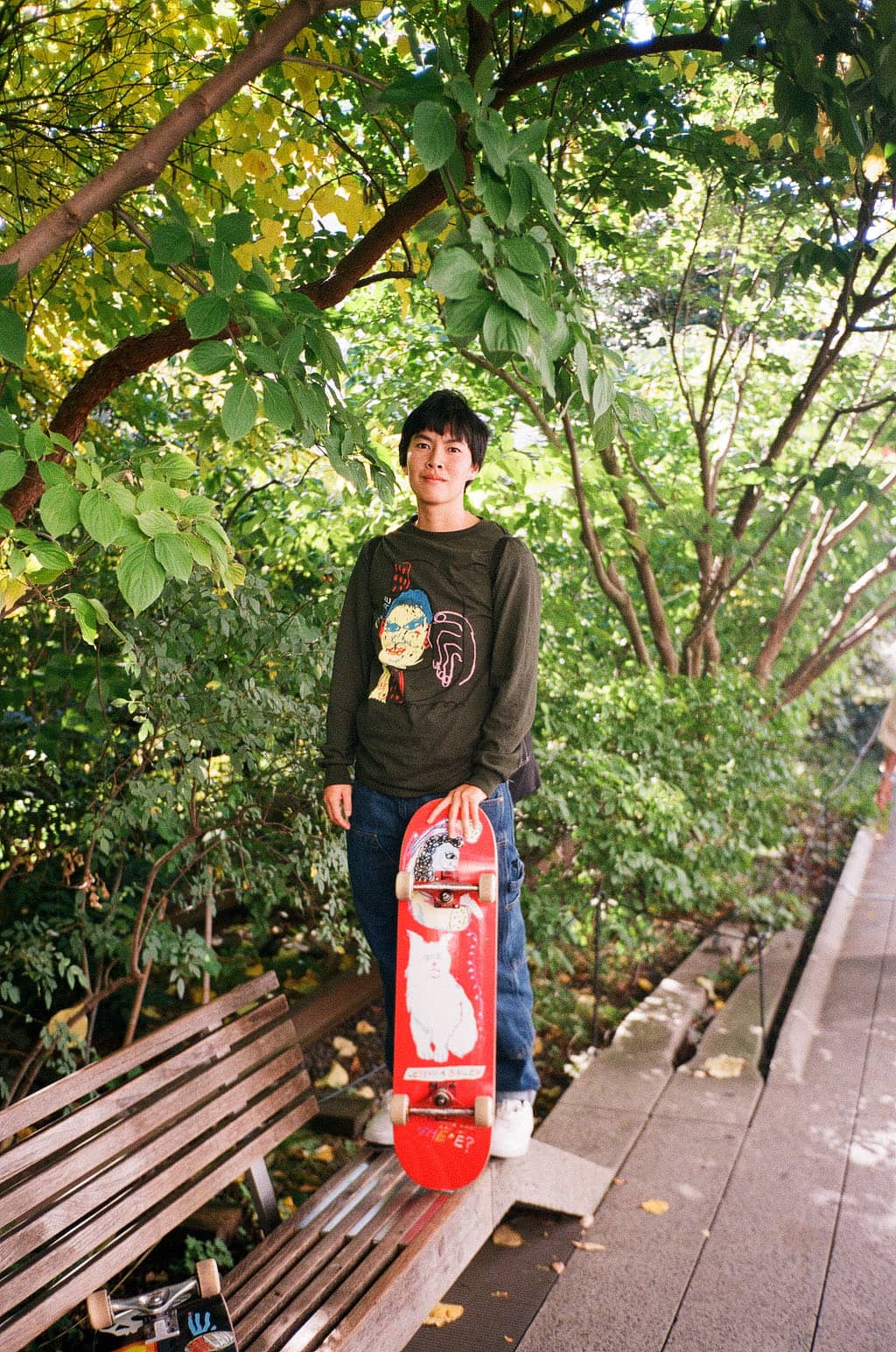
The positive reception to “Ruining Skateboarding” was emphasized when Sy dropped by Pop Skate Shop, a local store in Lisbon. “They were playing the video and they didn’t know that I was in it. It was so awesome. I talked to one of the managers at the shop and we ended up hanging out. It’s a huge validation that this is the direction that the industry wants to go. This is from the people. This is what they want. They want to see skateboarding become more inclusive.”
Carrying forward that momentum, There Skateboards released a second video, “Euro There 2”, in mid-October 2022. Following the There Skateboard team around Europe, “Euro There 2” carries on the legacy of fun, queer skateboarding. “ I think that was one of the best team trips that we’ve been on,” smiled Sy. “Every time we go on a trip it gets better and better.”
Surrounded by friends that share her passion for life and skateboarding, Sy is eager to see where the future takes her next. “More traveling, more skating, more filming, and more working with There Skateboards,” Sy smiled as she listed her plans for the coming year. “It’s really awesome [how things are] going, because this is definitely my dream. I’m able to do a lot of the pro skating things. I feel so lucky to be able to do the fun part and still have stability [in my life]. I have a lot of other things going on. I think that being injured has taught me to branch out in my interests. But skateboarding is still, and probably will always be number one, so I feel very grateful to have found that balance.”
